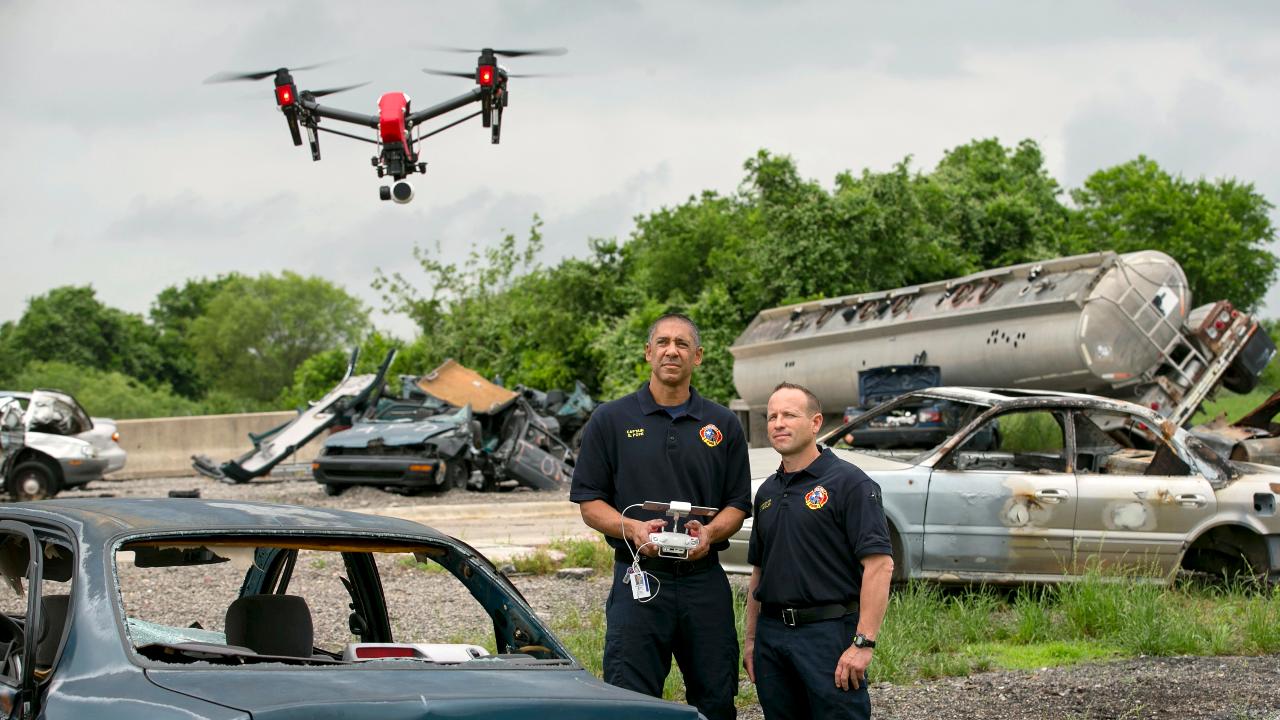US police embrace AI, cloud computing to boost public safety efforts
AUSTIN, Texas -- Police departments around the United States are turning to artificial intelligence, cloud computing and other technological revolutions to streamline everything from aging data entry systems to treatment of workplace stress.
Speaking at the South By Southwest tech conference, police and private sector officials noted that many of the country’s 48,000 police and fire departments are years behind on investments in modern technology. Budgetary limitations have placed many departments years behind in technological investment, hampering their ability to record and share critical case-related intelligence.
As a result, a growing number of departments are partnering with firms like Mark43, a tech firm behind a cloud-computing platform for managing arrest and case records that makes it easier for law enforcement officials to share and analyze data. The company has worked with police in Seattle and Boston, among other major cities.
“Data is critical to any large organization, and fast, real-time information is critical,” retired Boston Police Department superintendent Paul Fitzgerald said during a panel discussion.
New technology can be a secondary consideration for city police departments – even those with larger-than-average budgets. Of a proposed $360 million budget for the Seattle Police Department in 2019, roughly 80 percent is earmarked for personnel-related expenses. Chris Fisher, the department’s chief strategy officer, said officers “would have to re-type the same information in four different reports” before city police implemented cloud-computing technology.
Fisher said Seattle is exploring several technological innovations in its police force, including virtual reality to train officers on how to react in “difficult to recreate” situations, such as how to conduct a traffic stop on a busy highway, and artificial intelligence, which can track which officers have recently handled potentially traumatic cases. Using AI, those officers can be automatically reassigned to low-stress cases or flagged for support programs.
“If you don’t have a healthy officer, you’re not going to have a healthy department or a healthy relationship with the community,” Fisher said.
With data privacy concerns at an all-time high in the wake of several major breaches of companies like Facebook and Yahoo, Mark43 co-founder Matthew Polega said the platform has robust protections in place for sensitive cases such as homicides or sexual assaults. Any information that leaves the system, such as a detective’s case files tagged for a court case, is automatically logged.
“Anything that anybody does in the application is audited,” Polega said, adding that the system is capable of “automatic redaction” of police files to protect the privacy of victims.
When implementing technology, police officials also have to address the ethics of new developments such as drones and facial recognition software. In Seattle, Fisher said any new technology up for consideration is subject to assessment by city officials, community leaders and IT professionals. The city provides implicit bias training for its officers and asks tech partners to apply the same considerations to their platforms.
Fitzgerald noted that Boston police have yet to implement drones – despite their potential investigatory benefits – due to the potential impact on community relations.
CLICK HERE TO GET THE FOX BUSINESS APP
“It’s about public trust in major cities,” he said. “You need the community to trust what you’re doing, and that’s a lot of work every day. It’s not glamorous. And when you get to that point when you want to unveil technologies, they’re going to give you the benefit of the doubt, because they know you’re using them for the right seasons."




















